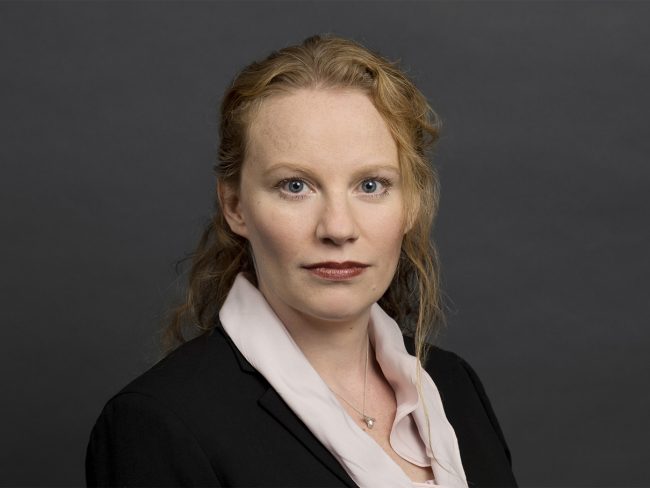In Mansion Place Ltd v Fox Industrial Services Ltd [2021] EWHC 2747 (TCC) Camille Slow and Dalton Hale successfully acted for the Claimant (Mansion) in its application under Practice Direction 57AC concerning trial witness statements. Mansion’s application was met by a cross-application from the Defendant, and the two applications were heard the week before trial (which, incidentally, was a trial under the Shorter Trials Scheme, PD 57AB). Judgment in the trial is awaited.
The judgment on the application, delivered by Mrs Justice O’Farrell DBE, is understood to be the first, and presently only, case in which the presiding judge of the TCC considers and offers guidance on this important new Practice Direction and how the TCC will approach its application.
Background to the case
At the core of the underlying dispute is the question of whether or not the Claimant agreed to forgo its entitlement to liquidated damages under the construction contract in return for the Defendant agreeing to forgo its entitlement to damages for loss and expense. The agreement was said to have been made orally during a telephone conversation between two people. The Claimant’s witness denied that such an agreement was ever reached.
The day before the parties were due to exchange witness statements, the Claimant’s solicitors contacted the Defendant’s solicitors seeking to agree a common referencing convention in accordance with paragraph 3.4 of the Appendix to PD 57AC (the Statement of Best Practice). In response, the Defendant’s solicitor stated: “I have to confess I wasn’t aware Practice Direction 57AC applied and have prepared the statements the “old fashioned way” by exhibiting documents referred to in the statements”. Following an agreed extension to the deadline, witness statements were exchanged. The Defendant had two witnesses, one of which was a claims consultant who had acted for the Defendant in previous adjudications. Upon receipt of the Defendant’s witness statements, it transpired that the claims consultant (a witness of fact for the purposes of trial) had proofed the Defendant’s other factual witness and drafted his witness statement.
The Applications
The Claimant argued that in order to properly comply with PD57AC and the Statement of Best Practice, it was necessary for a party’s legal representatives to actively seek compliance from Day 1. In light of the admission by the Defendant’s solicitor this, Mansion submitted, cannot have happened. The fact that one of the factual witnesses had proofed and drafted the witness statement of the other was also clearly inappropriate (and would always have been). Mansion further argued that the statements themselves were non-compliant as a matter of substance.
As such, Mansion’s application was two-fold. It sought:
- pursuant to Paragraph 5.2 of PD 57AC, redactions to Fox’s witness statements to remove those parts of the evidence that are said to be non-compliant with PD 57AC; and
- pursuant to Paragraph 4.4 of PD 57AC, amendment of the legal representative’s certificates of compliance in those witness statements to include statements that they were not prepared in accordance with the Statement of Best Practice.
Fox’s cross application sought redactions to Mansion’s witness statements.
The Judgment
As to the first limb of Mansion’s application concerning redactions, Mrs Justice O’Farrell DBE granted several of the redactions sought by Mansion (see [49]-[58]). The judge also allowed some of the redactions sought by Fox, and as such both parties were considered to have had a measure of success on their respective applications [67]. Whilst no criticism was made of the parties in this case (given that there was no existing authority in the TCC concerning the application of the Practice Direction such that it was appropriate for the parties to seek the guidance of the court) the judge emphasised that parties should generally attempt to find “more efficient and cost effective” ways of dealing with non-compliance with the PD and avoid “satellite litigation”. She highlighted that parties should attempt to reach agreement on the issue, and also the fact that the trial judge is often best placed to determine specific issues of admissibility (See [49]-[50]).
As to the second limb, despite his contemporaneous admission, the judge accepted the evidence of Fox’s solicitor that he was aware of the applicability of the Practice Direction. As to the use of the claims consultant, the judge found at [47] that:
“There is no prohibition on a draft witness statement being taken by a non-solicitor. However, in a case such as this, where the key issue turns on what was, or was not, said by two individuals in a telephone call, Mr Kite and Mr Ramanathan, the credibility and reliability of their factual accounts are critical. In those circumstances, it was inadvisable for another factual witness in the case, Mr Higginbottom, to prepare Mr Kite’s draft statements. The Claimant is justified in raising a concern as to whether Mr Higginbottom could remain independent and impartial when drafting Mr Kite’s account of the telephone exchange. As Mr Higginbottom already held a view as to where the merits of the dispute lay, particularly in the light of the earlier adjudication, it would be difficult for him to record Mr Kite’s evidence without viewing it through the lens of his formed opinion.”
However, on the facts of this case the judge found that adequate steps had been taken to ensure that the evidence had not been tainted and the fact that both witnesses would be cross-examined at trial offered a further safeguard. As such, subject to the above comments regarding the involvement of a witness in the drafting of another witness’ statement, the judge did not accept limb 2 of the Claimant’s application (see [48])
The judge also provided guidance on the requirement under Paragraph 3.2 of PD 57AC for witnesses to identify by list: “what documents, if any, the witness has referred to or been referred to for the purpose of providing the evidence set out in their trial witness statement”. The judge stated at [59] that:
“This does not require the witness statement to list every document which the witness has looked at during the proceedings. The purpose of the rule is to provide transparency in respect of documents used to refresh the memory of the witness so that the court and the other side can understand the extent to which, if at all, the witness might have been influenced by the contemporaneous documents, including those not seen at the time”
Finally, the judge provided some more general guidance on the PD. She found at [37] that the purpose of the new Practice Direction is not to change the law as to the admissibility of evidence at trial (per Mad Atelier International BV v Manes [2021] EWHC 1899) but rather it is to “eradicate the improper use of witness statements as vehicles for narrative, commentary and argument”. She also noted at [38]:
“Anyone involved in producing a witness statement for a trial in the BPC is urged to read PD 57AC and follow the Statement of Best Practice. It should be used as a checklist by parties and their legal representatives to ensure that they do not unwittingly offend against the rules that restrict the use of trial witness statements for their proper purpose, that is, providing in writing the evidence that the witness would give as oral evidence in chief. The stipulation that witnesses must confirm their understanding and compliance with the rules in their statements, and specification of the form of certificate of compliance to be completed by the parties’ legal representatives, serve an important function in demonstrating compliance with the restated practice, supported by the court’s power to impose sanctions in the event of failure.”
Camille Slow and Dalton Hale (instructed by Addleshaw Goddard LLP) acted for the Claimant.
Click here to read the full judgment: Mansion Place Ltd v Fox Industrial Services Ltd [2021] EWHC 2747 (TCC) (14 October 2021)







